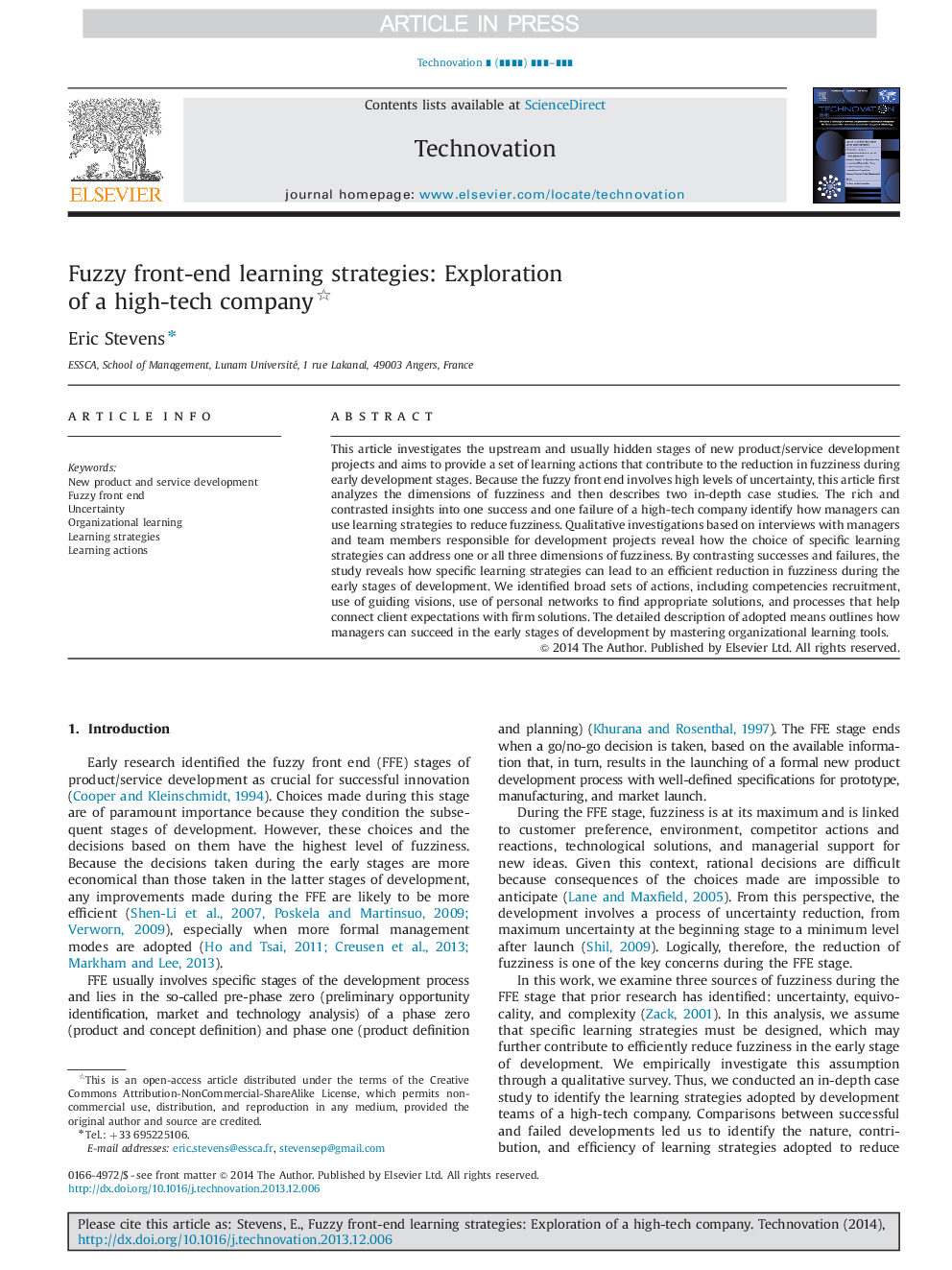| Article ID | Journal | Published Year | Pages | File Type |
|---|---|---|---|---|
| 10494894 | Technovation | 2014 | 10 Pages |
Abstract
This article investigates the upstream and usually hidden stages of new product/service development projects and aims to provide a set of learning actions that contribute to the reduction in fuzziness during early development stages. Because the fuzzy front end involves high levels of uncertainty, this article first analyzes the dimensions of fuzziness and then describes two in-depth case studies. The rich and contrasted insights into one success and one failure of a high-tech company identify how managers can use learning strategies to reduce fuzziness. Qualitative investigations based on interviews with managers and team members responsible for development projects reveal how the choice of specific learning strategies can address one or all three dimensions of fuzziness. By contrasting successes and failures, the study reveals how specific learning strategies can lead to an efficient reduction in fuzziness during the early stages of development. We identified broad sets of actions, including competencies recruitment, use of guiding visions, use of personal networks to find appropriate solutions, and processes that help connect client expectations with firm solutions. The detailed description of adopted means outlines how managers can succeed in the early stages of development by mastering organizational learning tools.
Related Topics
Social Sciences and Humanities
Business, Management and Accounting
Business and International Management
Authors
Eric Stevens,
